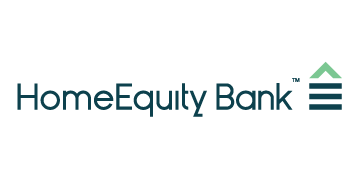
PAID CONTENT
Your clients’ financial planning objectives are continually evolving, and those of your higher-income retirees are no exception. They are living longer lives in retirement and want to keep their investment portfolios intact for as long as possible. Your affluent clients also want to maintain their desired lifestyles and require access to funds and cash-flow certainty to achieve their goals. But as inflation continues to rise, your clients may be tempted to cash out investments to fund their lifestyle and other needs. This can lead to taxable events for your clients and a loss of assets under management for your business.
Get in front of your clients’ needs
The good news is there’s a flexible financial planning solution that can address your clients’ needs: The CHIP Reverse Mortgage by HomeEquity Bank. With this innovative product, Canadians 55+ don’t have to move or sell; instead, they can access up to 55% of their home’s value in tax-free cash. Plus, monthly mortgage payments aren’t required, which frees up additional cash. In other words, with a reverse mortgage, the client’s home pays them. Best of all, your clients get to stay in the home they love.
With more than 90% of Canadians wanting to retire in their current homes, a reverse mortgage is a planning solution that’s growing in popularity. In fact, your clients may already be thinking about the benefits of a reverse mortgage – HomeEquity Bank funded $1 billion in new mortgages in 2021, much of that originating directly from individuals. Now’s the time to get in front of your clients’ needs and show them how they can benefit from a CHIP Reverse Mortgage.
Boost tax-efficient cash flow
It’s a myth that reverse mortgages are only for cash-poor, house-rich individuals. In reality, reverse mortgages can play a valuable role in the financial plans of higher-income clients who want access to tax-efficient cash flow; but who may have difficulty accessing traditional loans due to a lack of regular employment income. Plus, your clients don’t have to take the full amount of the reverse mortgage they qualify for; they can access funds whenever the need for cash flow arises. These funds can be used to meet a variety of different needs, including:
- Funding retirement lifestyles
- Purchasing a property
- Building investment portfolios
- Home renovations
- Helping children and grandchildren with down payments on a home
- Debt consolidation
- A reserve fund for unforeseen health care costs
Avoid taxable events, keep investment portfolios intact
For most Canadians 55+, the equity in their home and investment portfolios comprise the majority of their wealth. Chances are the value in their home has risen over the years and now makes up a large portion of their net worth. That’s good news for your clients, but this equity can be difficult to access for those who don’t want to sell their homes. With a reverse mortgage, this equity becomes accessible, and clients can turn it into tax-free cash, accessing their funds whenever needed. They maintain full ownership of their home and don’t have to make mortgage payments until they move or sell.
Your clients’ investments are the other major component of their net worth. However, from a financial planning perspective, accessing investment funds to meet cash flow needs is rarely the best strategy for your clients. For instance, selling a non-registered investment triggers a taxable event. Increasing withdrawals from registered plans to access funds also have taxable consequences; this may impact your client’s ability to capitalize on income-tested benefits like Old Age Security (OAS).
That’s why reverse mortgages are such an effective solution. Tapping into home equity to boost cash flow means more of your client’s registered assets will continue growing on a tax-deferred basis. This provides stability and peace of mind for clients who are living longer lives and who may want to enhance their estate for their heirs. Plus, since the money they receive from a reverse mortgage is a loan, it’s not added to their taxable income and does not affect benefits such as the OAS.
To learn more about the CHIP Reverse Mortgage and how it fits in your clients’ financial plans, visit us online.
Ready to provide your clients with a tax-efficient solution that will help them live their retirement on their terms? Contact a Business Development Manager today.
